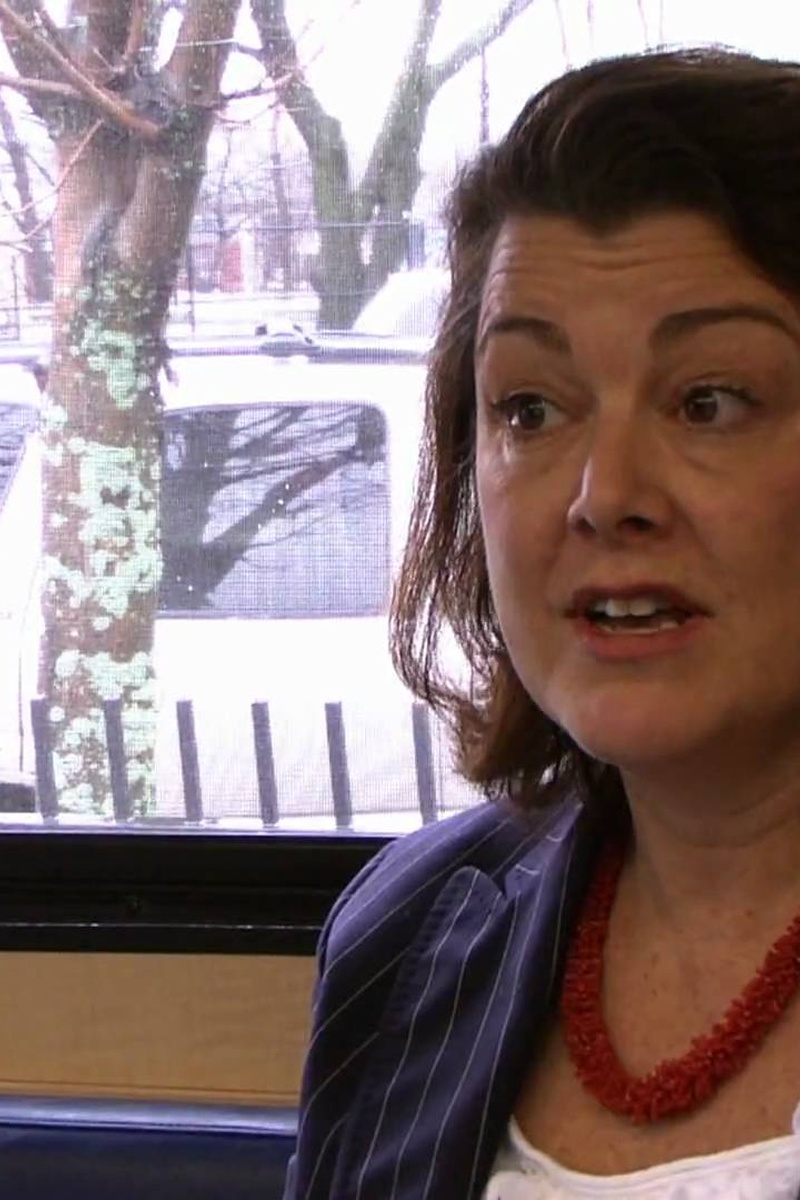Every Thursday morning, Calvin Miller waits for a 39-foot blue and white van to pull up on 577 Washington Street in Codman Square, Dorchester for his weekly primary care check-up.
The 30-year Dorchester resident, who is currently unemployed, first stopped by the Harvard Medical School-affiliated mobile health clinic four years ago out of curiosity.
“It was really good that I stopped, because I learned that my blood pressure was high,” Miller recalls. “But since I now come to the van, it’s started to drop.”
Founded in 1992 by current Medical School Dean for Students Nancy E. Oriol, The Family Van has been providing free health screenings at six sites in the Boston neighborhoods with the highest rates of obesity, heart disease, and diabetes. A small staff of health professionals regularly sees residents like Miller for preventative screenings ranging from blood pressure checks to confidential HIV testing and counseling.
But like many other mobile health clinics in Boston, The Family Van was forced to slash its budget by roughly 20 percent—or a little over $100,000—in 2008 and to cut back on staff and services including community health awareness events.
Faced with a shrinking donor base, The Family Van—which relies on funding from the Medical School and state and federal foundations—hopes to increase its visibility to prime for a larger fundraising push, Executive Director Jennifer L. Bennet says.
“In this kind of economy, the need [for mobile health clinics] only increases,” Bennet says. “But it is tough to be able to sustain these programs—they’re not cheap.”
‘A VERY SICK COMMUNITY’
Twenty years ago, when Oriol was treating patients at Harvard-affiliate Beth Israel Deaconess Mecical Center, she was struck by the high rates of infant mortality in Boston, which she says are symptomatic of a “very sick community” suffering from great disparaities in access to care.
Oriol recalls spending the next two years networking with “everybody and anybody who was related to healthcare in Boston.”
“Eventually, after talking to many men on the street, the barber shop, we crystallized the idea of a family van,” Oriol says.
Serving approximately 5,000 patients a year, The Family Van focuses on cost-effective prevention with free tests and counseling services in Boston’s low-income neighborhoods.
The Family Van is estimated to save the healthcare system roughly $20 million a year by treating patients who otherwise would not have regular access to primary care and saving them the cost of potentially expensive emergency room visits, Oriol explains.
Harvard researchers estimate that The Family Van returns $36 for every $1 spent on preventative care, based on a formula developed and published last year in BMC Medicine, an online peer-reviewed journal.
“Our model is focused on prevention, and in this country, we don’t fund prevention, we fund illness,” Bennet says. “That can sometimes make it difficult to have people understand the impact and the value of prevention.”
Read more in News
Police To Monitor River Run Activity













